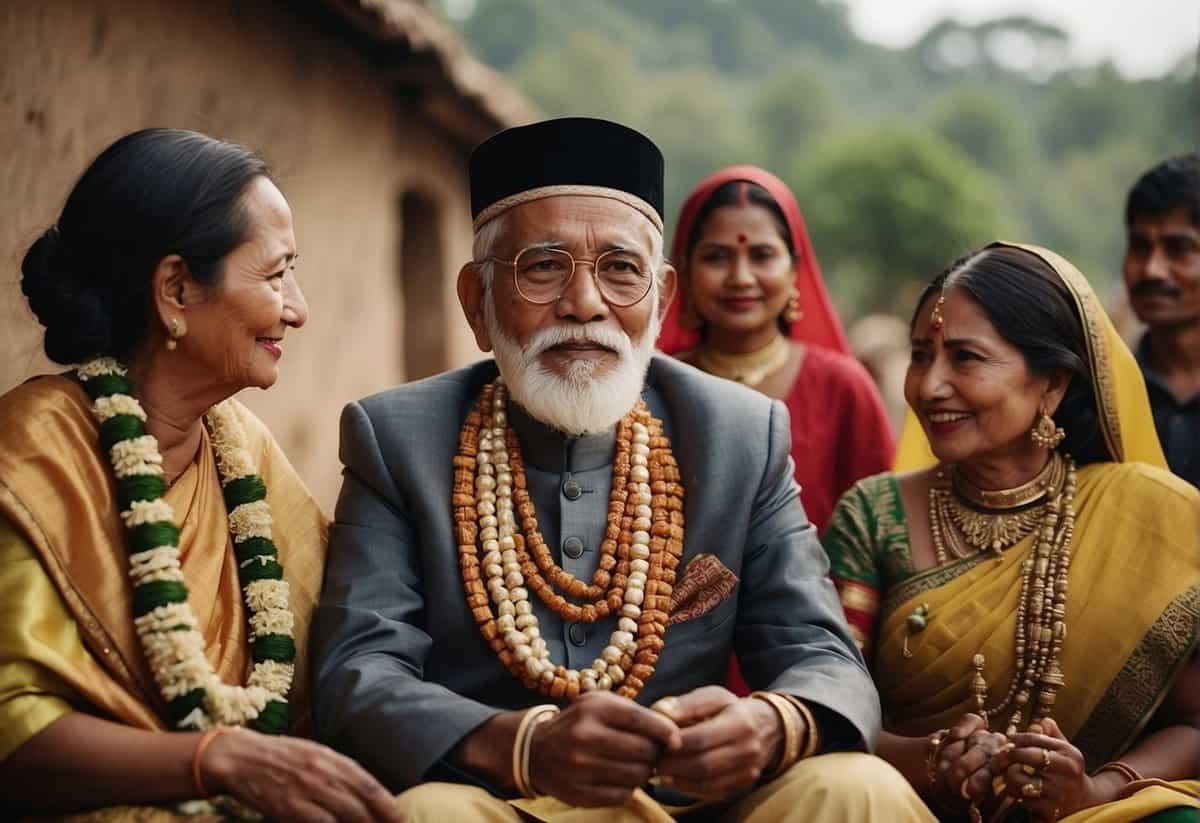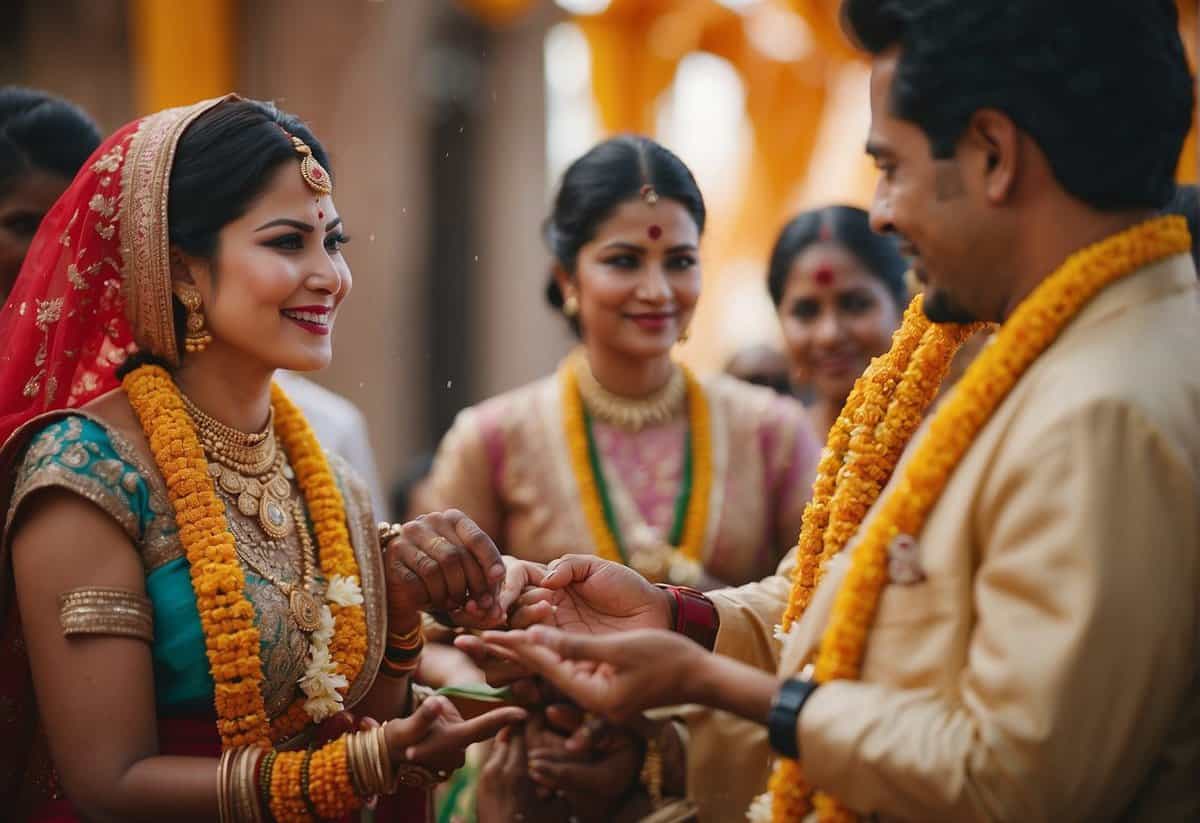Can You Marry Without Paying the Bride Price? Exploring Alternative Union Celebrations
The practice of paying a bride price, a longstanding tradition in many cultures, raises questions about its relevance and necessity in contemporary society. This custom, which involves a groom or his family providing a sum of money or assets to the bride’s family, is deeply entrenched in the customs of various communities worldwide. On the wedding journey, you might wonder if this exchange is a mandatory passage or if matrimony can proceed without it. The answer isn’t simple and can depend on factors like cultural expectations, family arrangements, and individual beliefs.

As modern values intertwine with traditional practices, attitudes towards bride price are shifting. Exploring alternative marriage avenues without the exchange of a bride price is increasingly common, though it may still stir debates within families and communities. The decision can have significant implications, touching on financial stability, cultural identity, and familial relationships. Understanding the potential impacts of forgoing bride price—whether they be social, economic, or personal—can help you navigate this complex subject.
Key Takeaways
- Bride price is a cultural tradition involving the transfer of value from groom to bride’s family.
- Opinions on the necessity of bride price in marriage are evolving with modern values.
- Alternatives to bride price are linked to broader socio-economic and familial factors.
Cultural Significance of Bride Price

Bride price, also known as bride wealth, isn’t just a financial transaction; it’s a tradition that embodies respect, appreciation, and commitment within various communities. Your understanding of this practice enriches your appreciation of its cultural depth across societies.
Bride Price in African Societies
In many African cultures, the bride price is a tradition that’s more than a mere transaction; it is a symbolic act showcasing respect and linking two families together. When you look at societies in Nigeria, Uganda, and Zimbabwe, for example, you’ll find that the practice of paying a bride price, known as lobola in South Africa and roora in Zimbabwe, reaffirms the value the community places on the woman and the union. In these cultures, the bride price is seen as a demonstration of the groom’s ability to provide for his wife, and it’s a gesture that honors the parents for their role in raising the daughter.
- Zimbabwe: Practice of Roora.
- South Africa: Known as Lobola.
- Nigeria and Uganda: Also strong adherents to bride price customs.
Bride Price in Asian and Middle Eastern Contexts
In Asia, particularly within Chinese culture, the bride price has a parallel known as the dowry or sometimes referred to as dower. However, unlike the African bride price where the wealth often moves from groom’s to bride’s family, dowry is generally wealth transferred from the bride’s family to the groom or the couple. The bride price in Chinese tradition serves as assurance of the woman’s status and welfare within the husband’s family.
- Chinese Culture: Dowry as a form of bride price.
In the Middle East and within Islamic jurisdictions, a variant of bride price is observed with a written marriage contract known as a ketubah. Here, the practice embeds religious significance, as it is designed to protect the rights of the woman in the marriage, stating the husband’s financial duty to his wife, both in terms of present gifts and future security.
- Middle East/Islam: Ketubah signifies religious and financial commitment.
This array of customs under the umbrella of bride price, from Africa’s lobola to the Middle Eastern ketubah, underscores a shared human tradition; it’s a ritual steeped in the valuing of relationships and the binding of lives in diverse cultural landscapes.
Economic Aspects of Bride Price

When it comes to marriage customs, the financial implications of bride price can be far-reaching for you and your family. It involves more than just a simple transaction; it’s about tradition, negotiation, and the economics of merging lives.
Negotiation and Payment Strategies
Bridal negotiations aren’t just tough conversations; they’re a balancing act. You need to consider the cost and value of the bride price and how it aligns with your wealth. It’s not uncommon for goods like cattle, land, or jewelry to play a part in the discussion. A practical tip for you: approach negotiations with an understanding of both parties’ expectations and capacities.
- Strategies Might Include:
- Assessing the total value of the bride price.
- Discussing payment terms, such as installments.
- Considering non-monetary assets like education or business contributions.
The aim is to reach an agreement that respects both the cultural significance of the bride price and your financial reality.
Impact on Family and Community Economics
The effect of bride price on a household’s finances cannot be overstated. Your family might see it as a form of bride-wealth that cements community ties. It’s a testament to the saying, “It takes a village,” because sometimes, cash payments or high-value items like cattle or land are collected from a wide network of relatives.
- Economic Ripple Effects:
- The redistribution of wealth through these practices.
- Impact on your and the bride’s family’s ability to invest in other essentials.
- Potential changes in property or land ownership within the community.
By acknowledging and understanding the economic aspects of bride price, you’re better equipped to navigate this traditional practice in a way that’s respectful and sustainable for everyone involved.
Social Implications and Changes

As societies evolve, so do views on traditional practices. You’ll find that the concept of bride price is no exception, with modern perspectives offering fresh takes and legal frameworks shaping its relevance in contemporary marriage customs.
Modern Views on Bride Price
In many urbanized regions, education and gender equality movements have reframed what commitment and respect mean within a marriage. Young people in particular are questioning the necessity of a bride price, seeing it as potentially commodifying the marriage process. In some circles, prenuptial agreements are becoming a more accepted form of negotiating the financial aspects of a union, focusing more on protecting individual rights and autonomy post-marriage.
As gender equality gains ground, the conversation often centers on whether the bride price tradition upholds or undermines women’s autonomy. Your views might differ, but it’s clear that across many societies, particularly those experiencing rapid urbanization, the bride price is being scrutinized through the lens of contemporary values.
Legal and Social Movements
The Kenyan Constitution, for example, supports gender equality and might influence how bride price is perceived legally. Various policies and educational programs aim to balance cultural customs with the rights of individuals within a marriage.
Legal frameworks increasingly protect against forced marriage and ensure that any forms of marital transactions respect individual consent and are not coercive. In Kenya and elsewhere, the law might not prohibit bride price but often includes protections against its misuse that could lead to divorce or a disregard of gender equality. As you navigate these changes, consider how law and policy may impact your decision regarding bride price when it comes to marriage and divorce, emphasizing the protection of individual rights and promoting gender equality.
Frequently Asked Questions

In this section, you’ll find answers to common inquiries about bride price and dowry, which are traditional practices in various societies worldwide. These answers offer insight into cultural significance, legal aspects, and the potential for marriages without these payments.
What are the cultural significances of bride price in traditional societies?
Bride price is a deep-rooted cultural custom where the groom or his family provides gifts or money to the bride’s family. It signifies respect and appreciation for the bride’s upbringing and is essential in many African societies.
How do dowry and bride price differ?
The dowry is a transfer of parental property, gifts, or money at the marriage of a daughter, from the bride’s family to the bride and groom. Conversely, a bride price is paid by the groom or his family to the bride’s family, sometimes as a way to balance the transfer of the bride’s labor and fertility to the groom’s family.
What arguments exist for the abolition of bride price?
Critics argue that bride price can lead to negative outcomes like commodifying women, perpetuating gender inequalities, and causing financial burdens. Concerns have been raised about the well-being of women in societies where this practice is still prevalent.
What are the conventional practices for dowry payments in India?
In India, dowry is a longstanding tradition where the bride’s family often provides a substantial dowry, including cash, jewelry, and household items, to help establish the new household.
Can one have a legal marriage ceremony without a dowry in countries where it is practiced?
Yes, it is entirely possible to have a legal marriage without dowry payments. Law does not mandate dowry, however, some families voluntarily continue the practice as a form of tradition.
Is it legally required to pay dowry or bride price in the US?
No, in the US, there is no legal requirement for the payment of dowry or bride price. Marriage laws focus on legal consent and do not stipulate any such financial exchange.

